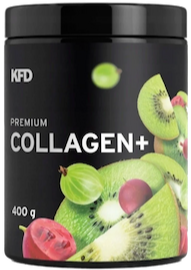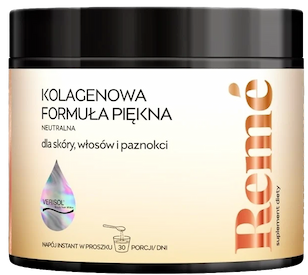Collagen for acne: to drink, in tablets. Does it help at all?
Collagen for acne is the subject of many myths. Find out which ones are true.


Learn more about our editorial process
.

Learn more about our editorial process
.

Learn more about our editorial process
.

Learn more about our editorial process
.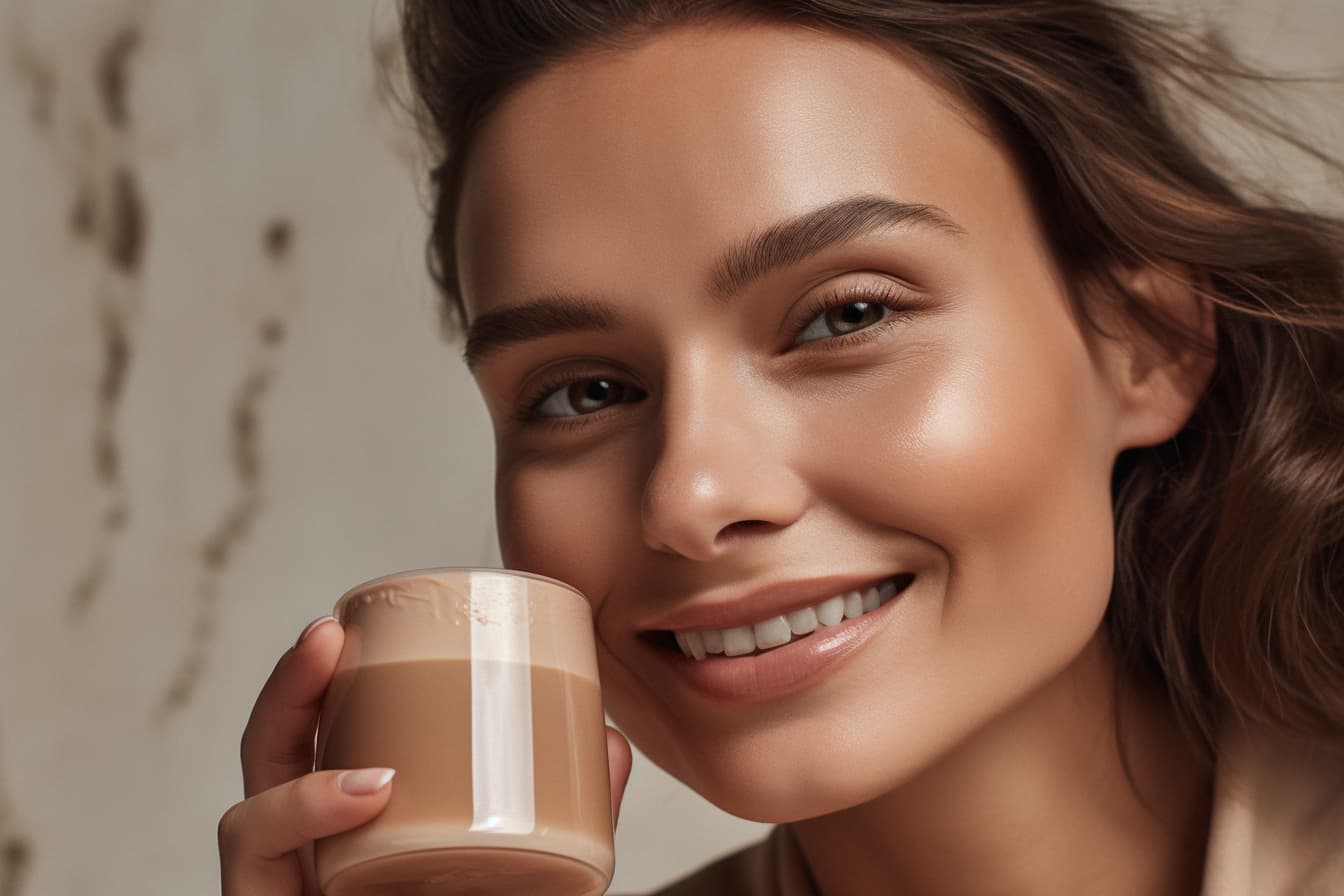
Why you can trust us
Articles on Natu.Care are written based on scientific research, data from government websites and other reliable sources. The texts are written in cooperation with doctors, nutritionists and other health and beauty experts. Articles are reviewed before publication and during significant updates.
.Learn more about our editorial process
.Information about advertisements
Content on Natu.Care may contain links to products from the sale of which we may receive a commission. When creating content, we adhere to high editorial standards and take care to be objective about the products discussed. The presence of affiliate links is not dictated by our partners, and we select the products we review ourselves completely independently.
.Learn more about our terms and Conditions
.In Europe, 85% of people in adolescence struggle with acne. As many as 25% of them require a specialised approach. Acne problems are also faced by one in two adults. Do you too?
Maybe you hide behind more layers of make-up. You avoid company. You are afraid of judgmental stares. You are ashamed to look in the mirror. You look for different ways and think about collagen - after all, it helps your skin. Maybe finally...?
With cosmetologist, Catherine Srebr, we'll tell you what you can expect from collagen supplementation for acne and find out what's beyond its capabilities.
From this text you will learn:
- What is acne and what are its causes.
- What is acne?
- Why collagen creams do not work as you assume. .
- What are the treatments for acne. .
- Will collagen reduce acne scars. .
- Which collagen is best to support acne control. .
See also:
.
- Collagen for bones
- Collagen for tendons
- Facial care in a nutshell
- Acne [compendium of knowledge] .
- Rasal acne .
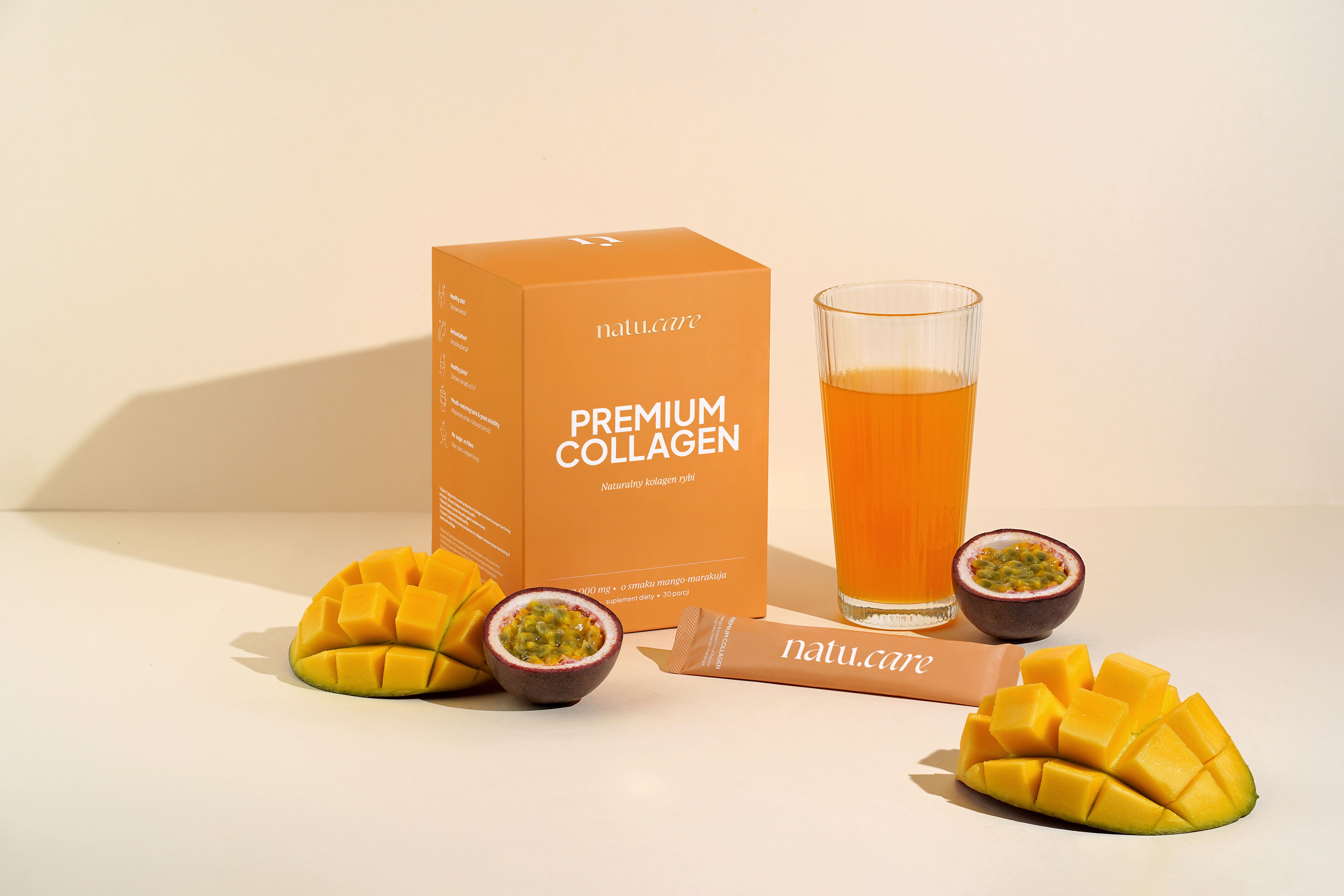
Sprawdź, za co pokochały go tysiące klientek Kolagen Premium 10000 mg, mango-marakuja
Natu.Care Kolagen Premium 10000 mg, mango-marakuja
Natu.Care Kolagen Premium dla zdrowia stawów, skóry, paznokci i włosów. Najlepsza przyswajalność. Optymalna dawka 5 000 lub 10 000 mg. Przebadany przez niezależne laboratorium.
Zobacz więcej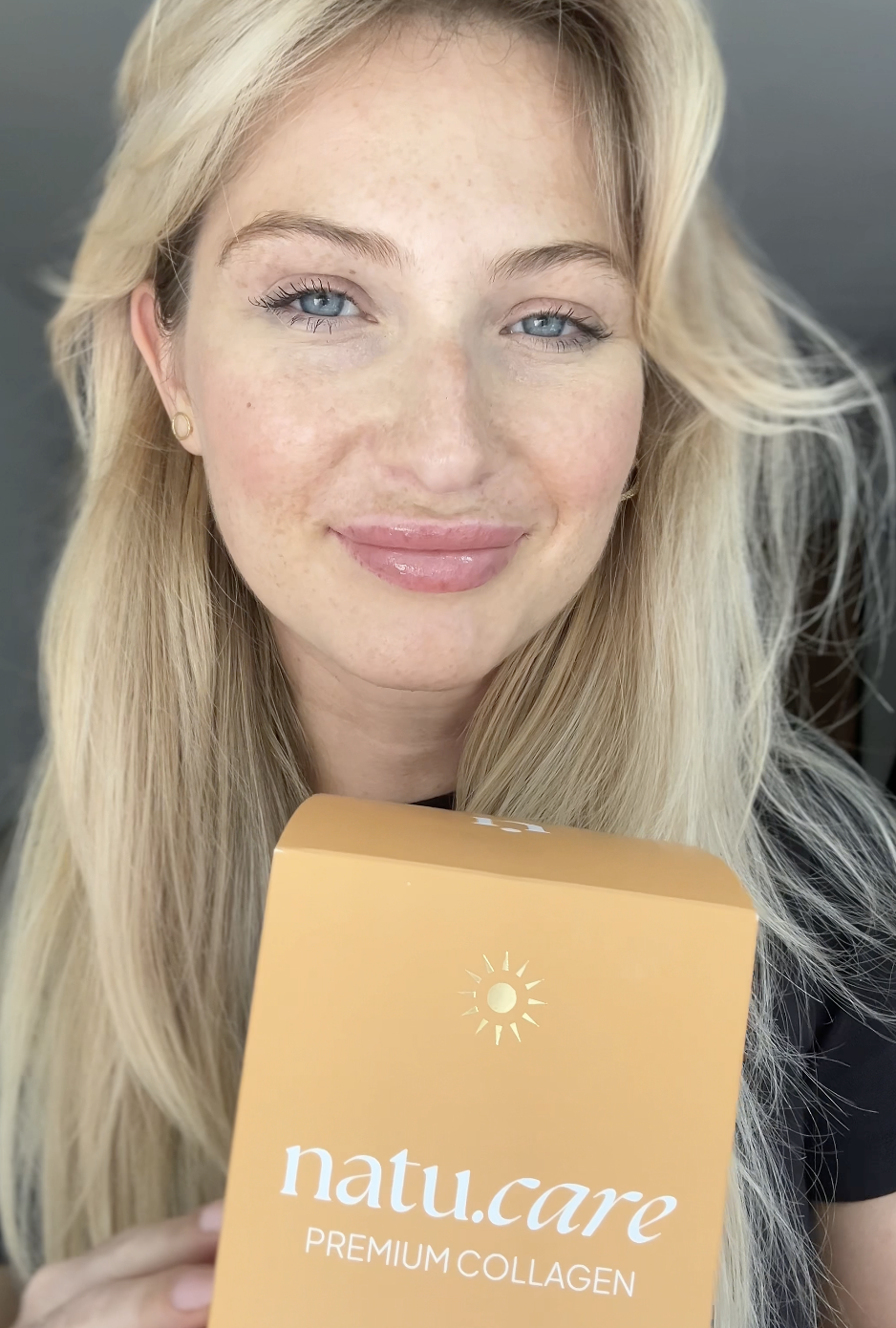
Wybrałam kolagen Natu.Care, ponieważ miał super opinie – a to było dla mnie bardzo ważne! Odkąd go stosuję, moja skóra znacznie się poprawiła i jest nawilżona, a na głowie pojawiły się nowe "baby hair".@Kasia S.
What is acne and what are its causes?
Acne is a multifactorial inflammatory skin disease that affects the entire hair and sebaceous apparatus. It occurs mainly as a result of hormonal disturbances or rapid changes. Its symptoms include inflammatory lesions, as well as open and closed comedones - mainly on the face, neck, décolleté and in the back area.
There are several types of acne (e.g. rosacea, common acne, hormonal acne, cystic acne, papulopustular acne). Each of these is not only a medical problem, but also an aesthetic and psychological problem.
Acne affects approximately 80% of people worldwide between the ages of 16 and 35 years and 40-54% of adults.
As many as 12% of women and 3% of men over 25 years of age are eligible for clinical treatment.and.
Unfortunately, to date we do not have a one-size-fits-all way to combat acne..

Katarzyna SrebrCosmetologist
It all comes down to identifying the causes of acne onset and the severity of symptoms.
Unfortunately, research and years of observation by experts show that more and more factorsand - both external and internaland - are influencing the onset of acne. And more are still coming. Experts highlight among them
- excessive sebum secretion, .
- changes in the keratinisation process, .
- action of the bacteria Propionibacterium acnes and Cutibacterium acnes (although many colonies of the latter are also found in healthy skin), .
- hormonal changes, including an increase in IGF-1, .
- inadequate skin care, .
In addition, air pollution, aggressive skin care products, medications, as well as mechanical, family, lifestyle and stress factors are also increasingly being highlighted.
About 90% of acne patients who qualify for in-office treatment end up there because of poor skin care..
 .
.
Katarzyna SrebrCosmetologist
.
For years it was thought that nutrition could cause or aggravate acne. Nowadays, the medical literature indicates that certain dietary elements and eating behaviours can influence acneand. These include:
- excessive consumption of dairy products, .
- excessive consumption of processed and sugar-rich foods, .
- obesity, .
- nutritional disorders, .
Does natural collagen work for acne?
.
Let's be clear. Collagen will not cure acne. There is no scientific research to support this. Collagen supplementation, however, can provide you with a useful support for problematic skin.
How can collagen help in the fight against acne?
.
Collagen products can help you fight acne by supporting the regeneration and production of collagen in our bodiesand.
If the cause of inflammatory lesions is improper care that disrupts the hydrolipid barrier - collagen contained in cosmetic products (creams, serums) can indirectly alleviate the formation of lesions due to its regenerative, soothing and sebaceous gland regulating properties..
 .
.
Katarzyna SrebrCosmetologist
Remember, however, that the collagen molecule - because of its size - will not penetrate into the deeper layers of the skin. Its action in face creams, ointments or serums is limited to the top layers of the epidermis only.
If you want to strengthen your skin with collagen, a more effective and long-term solution would be supplementation of this protein. Collagen needs to enter the bloodstream and start working from the inside. This action is provided by collagen hydrolysate, whose molecules - peptides - are much smaller than other forms of this protein, so they are better and faster absorbed.
In short - don't rub it in, eat it.
Natu.Care Collagen Premium 5000 mg, mango-maracuja

- Collagen content: 5000 mg marine collagen hydrolysate
- .
- Additional active ingredients: vitamin C, low molecular weight hyaluronic acid (and L-theanine and coenzyme Q10 in cocoa flavoured collagen or vitamin A and vitamin E in mango–passion fruit flavoured collagen)
- .
- Form: powder sachets
- .
- Dose: 1 sachet per day
- .
- Sufficient for: 30 days
- .
Product description
Fish collagen from the Natu.Care brand in a dose of 5000 mg. The formula contains a sufficient portion of the active substance to positively affect your joints, musculoskeletal system and immunity.
Take care of your tendons, joint cartilage, ligaments, muscles and even bones by supplying them with the building blocks to function properly. Move without bólu and provide the necessary support for any physical activity.
And as a „gratis” to regular supplementation, you will also receive firm skinóhand, healthy and shiny hair and strong nails.
Natu.Care Premium Collagen is available in two flavours – Cacao Bloom and Rise&Shine. Both formulas are based on the following active ingredients: marine collagen hydrolysate, wild roseóbud extract and hyaluronic acid.
Additionally, Cacao Bloom contains natural L-theanine, coenzyme Q10 and defatted Dutch cacao. Rise&Shine instead contains vitamin E and vitamin A.
These are the best collagens in the world.
These best fish collagens on the market also rós taste – Cacao Bloom is a treat for chocolate lovers. Rise&Shine will appeal to those whoóenjoy the refreshing taste of mangoófruit and passion fruit.
Pros and cons
Fish collagen from the Natu.Care brand in a dose of 5000 mg. The formula contains a sufficient portion of the active substance to positively affect your joints, musculoskeletal system and immunity.
Take care of your tendons, joint cartilage, ligaments, muscles and even bones by supplying them with the building blocks to function properly. Move without bólu and provide the necessary support for any physical activity.
And as a „gratis” to regular supplementation, you will also receive firm skinóhand, healthy and shiny hair and strong nails.
Natu.Care Premium Collagen is available in two flavours – Cacao Bloom and Rise&Shine. Both formulas are based on the following active ingredients: marine collagen hydrolysate, wild roseóbud extract and hyaluronic acid.
Additionally, Cacao Bloom contains natural L-theanine, coenzyme Q10 and defatted Dutch cacao. Rise&Shine instead contains vitamin E and vitamin A.
These are the best collagens in the world.
These best fish collagens on the market also rós taste – Cacao Bloom is a treat for chocolate lovers. Rise&Shine will appeal to those whoóenjoy the refreshing taste of mangoófruit and passion fruit.
Additional information
Fish collagen from the Natu.Care brand in a dose of 5000 mg. The formula contains a sufficient portion of the active substance to positively affect your joints, musculoskeletal system and immunity.
Take care of your tendons, joint cartilage, ligaments, muscles and even bones by supplying them with the building blocks to function properly. Move without bólu and provide the necessary support for any physical activity.
And as a „gratis” to regular supplementation, you will also receive firm skinóhand, healthy and shiny hair and strong nails.
Natu.Care Premium Collagen is available in two flavours – Cacao Bloom and Rise&Shine. Both formulas are based on the following active ingredients: marine collagen hydrolysate, wild roseóbud extract and hyaluronic acid.
Additionally, Cacao Bloom contains natural L-theanine, coenzyme Q10 and defatted Dutch cacao. Rise&Shine instead contains vitamin E and vitamin A.
These are the best collagens in the world.
These best fish collagens on the market also rós taste – Cacao Bloom is a treat for chocolate lovers. Rise&Shine will appeal to those whoóenjoy the refreshing taste of mangoófruit and passion fruit.
User review
Fish collagen from the Natu.Care brand in a dose of 5000 mg. The formula contains a sufficient portion of the active substance to positively affect your joints, musculoskeletal system and immunity.
Take care of your tendons, joint cartilage, ligaments, muscles and even bones by supplying them with the building blocks to function properly. Move without bólu and provide the necessary support for any physical activity.
And as a „gratis” to regular supplementation, you will also receive firm skinóhand, healthy and shiny hair and strong nails.
Natu.Care Premium Collagen is available in two flavours – Cacao Bloom and Rise&Shine. Both formulas are based on the following active ingredients: marine collagen hydrolysate, wild roseóbud extract and hyaluronic acid.
Additionally, Cacao Bloom contains natural L-theanine, coenzyme Q10 and defatted Dutch cacao. Rise&Shine instead contains vitamin E and vitamin A.
These are the best collagens in the world.
These best fish collagens on the market also rós taste – Cacao Bloom is a treat for chocolate lovers. Rise&Shine will appeal to those whoóenjoy the refreshing taste of mangoófruit and passion fruit.
Natu.Care Collagen Premium 10000 mg, cherry

- Collagen content: 10,000 mg of hydrolyzed bovine collagen
- Additional active ingredients: vitamin C, low molecular weight hyaluronic acid, glucosamine, chondroitin, extract of Indian frankincense resin (boswellia serrata)
- Form: powder sachets for drinking
- Serving: 1 sachet per day
- Lasts for: 30 days
Product description
One of the strongest collagens on the market, providing as much as 10,000 mg per daily serving. This product can effectively support the condition of joints, skin, hair, and nails.
With this supplement, you will support your skeletal and joint system as well as your beauty, helping you visually halt the aging process and feel rejuvenated!
Pros and cons
Pros:
- The daily portion of collagen is very large – as much as 10,000 mg.
- Proven collagen formula – COLLinstant, whose effectiveness has been confirmed in clinical studies.
- Effective dose of hyaluronic acid, which additionally moisturizes the skin and positively affects joint health.
- Vitamin C supports the body's natural collagen production.
- Glucosamine is a fundamental building block of compounds found in joint cartilage and a component of collagen that gives elasticity to connective tissue in tendons.
- Chondroitin is a natural component found in the human body, mainly in cartilage. This large molecule (mucopolysaccharide) has the ability to absorb water, which helps maintain the elasticity and resilience of cartilage.
- Frankincense resin extract supports blood circulation and joint mobility and reduces their stiffness. It may help alleviate inflammatory conditions.
- The composition has been tested by the independent and accredited J.S. Hamilton laboratory.
Cons:
- None.
Additional information
Users praise Natu.Care Collagen Premium for the easy dissolving of the powder.
ALLDEYNN Collarose Fish
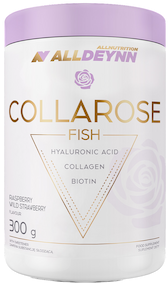
- Collagen content: 5000 mg hydrolysate fish collagen VERISOL F® .
- Additional active ingredients: vitamin C, hyaluronic acid, biotin
- Form: powder to dissolve in water .
- Dose: one scoop (6 g) of powder daily .
- Sufficient for: 50 days .
Product description
Atlantic cod collagen VERISOL F® contained in the formula are easily absorbed collagen peptides of fish origin. Regular supplementation can firm your skinóhand and slow down the ageing process. Your nails will become stronger and stop breaking. The addition of biotin will improve the condition of your hairów. The collagen portion is high enough to also have a good effect on your joints, muscles and bones.
Pros and cons
Atlantic cod collagen VERISOL F® contained in the formula are easily absorbed collagen peptides of fish origin. Regular supplementation can firm your skinóhand and slow down the ageing process. Your nails will become stronger and stop breaking. The addition of biotin will improve the condition of your hairów. The collagen portion is high enough to also have a good effect on your joints, muscles and bones.
Additional information
Atlantic cod collagen VERISOL F® contained in the formula are easily absorbed collagen peptides of fish origin. Regular supplementation can firm your skinóhand and slow down the ageing process. Your nails will become stronger and stop breaking. The addition of biotin will improve the condition of your hairów. The collagen portion is high enough to also have a good effect on your joints, muscles and bones.
Expert and user opinion
Atlantic cod collagen VERISOL F® contained in the formula are easily absorbed collagen peptides of fish origin. Regular supplementation can firm your skinóhand and slow down the ageing process. Your nails will become stronger and stop breaking. The addition of biotin will improve the condition of your hairów. The collagen portion is high enough to also have a good effect on your joints, muscles and bones.
DuoLife Collagen fish collagen 2500 mg
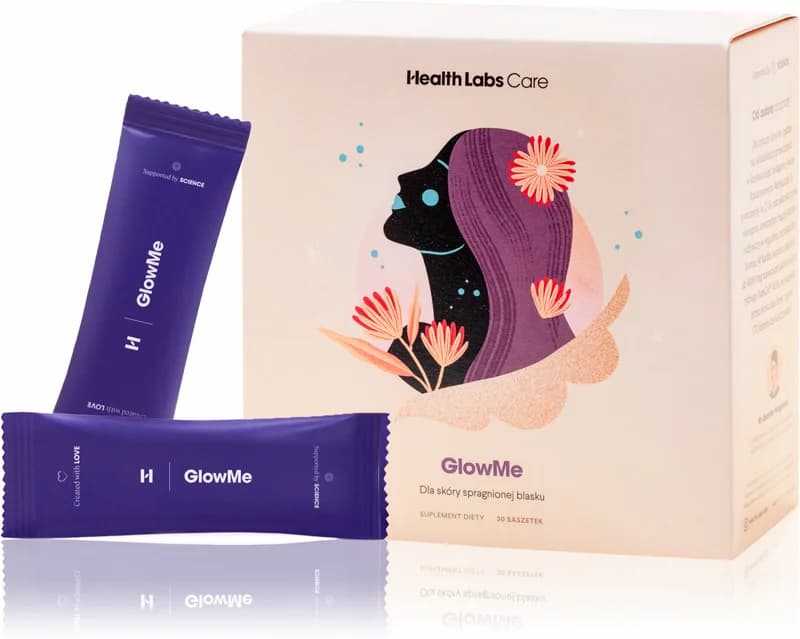
- Collagen content: 2500 mg collagen
- Additional active ingredients: vitamin C, silicon, glucosamine, hyaluronic acid, nettle and bamboo extracts
- Form: liquid to drink .
- Dose:25 ml .
- Sufficient for: 30 days .
Product description
100% natural collagen liquid without unnecessary ingredientsós. The composition of ingredientsós improves the appearance and condition of skinóry, hairów, nails. DuoLife is a good choiceór if you notice the first signs of skinóry ageing or want to stop this process. A tasty liquid, convenient to use.
Pros and cons
100% natural collagen liquid without unnecessary ingredientsós. The composition of ingredientsós improves the appearance and condition of skinóry, hairów, nails. DuoLife is a good choiceór if you notice the first signs of skinóry ageing or want to stop this process. A tasty liquid, convenient to use.
Additional information
100% natural collagen liquid without unnecessary ingredientsós. The composition of ingredientsós improves the appearance and condition of skinóry, hairów, nails. DuoLife is a good choiceór if you notice the first signs of skinóry ageing or want to stop this process. A tasty liquid, convenient to use.
User review
100% natural collagen liquid without unnecessary ingredientsós. The composition of ingredientsós improves the appearance and condition of skinóry, hairów, nails. DuoLife is a good choiceór if you notice the first signs of skinóry ageing or want to stop this process. A tasty liquid, convenient to use.
Pharmovit liquid collagen 10000 mg
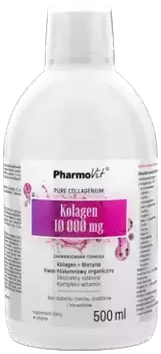
- Collagen content: 10000 mg hydrolysed bovine collagen types I and III .
- Additional active ingredients: hyaluronic acid, natural plant extracts, vitamin C, B vitamins, zinc, vitamin D
- Form: vials .
- Dose: 25 ml .
- Sufficient for: 20 days .
Product description
A solid daily dose of collagen for jointómuscle and bone health and beauty. The duo of collagen and vitamin C has a positive effect on each other, so that „the protein of youth” is better absorbed and more efficiently produced in the body.
Pros and cons
A solid daily dose of collagen for jointómuscle and bone health and beauty. The duo of collagen and vitamin C has a positive effect on each other, so that „the protein of youth” is better absorbed and more efficiently produced in the body.
Additional information
A solid daily dose of collagen for jointómuscle and bone health and beauty. The duo of collagen and vitamin C has a positive effect on each other, so that „the protein of youth” is better absorbed and more efficiently produced in the body.
KFD Premium Collagen+
Product description
High dose of collagen and a real bomb of vitamins C and D and organic sulphur. With this preparation the effects will come immediately. You will improve the firmness of your skin and reduce wrinkles. Your hair and nails will be strong and shiny.
A generous dose of collagen will improve the mobility of your jointsós, benefit your bone system and muscles. Do you do sports and need a product thatós able to keep up with your needs? This product will do the trick.
Pros and cons
High dose of collagen and a real bomb of vitamins C and D and organic sulphur. With this preparation the effects will come immediately. You will improve the firmness of your skin and reduce wrinkles. Your hair and nails will be strong and shiny.
A generous dose of collagen will improve the mobility of your jointsós, benefit your bone system and muscles. Do you do sports and need a product thatós able to keep up with your needs? This product will do the trick.
Additional information
High dose of collagen and a real bomb of vitamins C and D and organic sulphur. With this preparation the effects will come immediately. You will improve the firmness of your skin and reduce wrinkles. Your hair and nails will be strong and shiny.
A generous dose of collagen will improve the mobility of your jointsós, benefit your bone system and muscles. Do you do sports and need a product thatós able to keep up with your needs? This product will do the trick.
Expert opinion
High dose of collagen and a real bomb of vitamins C and D and organic sulphur. With this preparation the effects will come immediately. You will improve the firmness of your skin and reduce wrinkles. Your hair and nails will be strong and shiny.
A generous dose of collagen will improve the mobility of your jointsós, benefit your bone system and muscles. Do you do sports and need a product thatós able to keep up with your needs? This product will do the trick.
Product description
The dietary supplement from Remé contains beef collagen in a patented formula and vitamin C, whichóra aids its absorption. The formula comes in three flavours: neutral, orange-maracuja and strawberry-pomegranate. The formula can effectively support and improve the condition of the skinóry, hairóry and nails.
Pros and cons
The dietary supplement from Remé contains beef collagen in a patented formula and vitamin C, whichóra aids its absorption. The formula comes in three flavours: neutral, orange-maracuja and strawberry-pomegranate. The formula can effectively support and improve the condition of the skinóry, hairóry and nails.
Additional information
The dietary supplement from Remé contains beef collagen in a patented formula and vitamin C, whichóra aids its absorption. The formula comes in three flavours: neutral, orange-maracuja and strawberry-pomegranate. The formula can effectively support and improve the condition of the skinóry, hairóry and nails.
The dietary supplement from Remé contains beef collagen in a patented formula and vitamin C, whichóra aids its absorption. The formula comes in three flavours: neutral, orange-maracuja and strawberry-pomegranate. The formula can effectively support and improve the condition of the skinóry, hairóry and nails.
{ product:3toZVdGtbWWEszm5MCkjxH }}
{ product:7wbbYMdFBNShPpKryvr8wR }}
{ product:7oWtjJtmIVq1UJtl2nlbv5 }}
See also:
.
- Collagen - properties and dosage .
- Collagen deficiency - causes and symptoms .
- Most powerful collagen - Ranking .
- Best Collagen - Ranking
- What are the effects of drinking collagen? .
Will collagen help with acne scars?
.
Collagen is a natural humectant, so it effectively helps moisturise the skinand this is extremely important in the treatment of scars. Research findings suggest that collagen can help treat acne scars, which are caused by, among other things, the degradation of collagen fibres in the skin, and these are effectively rebuilt during healing.
Today we do not know of any way to completely eradicate scars. Cosmetic, cosmetological and medical measures are limited to camouflaging the scar, improving its overall condition, its mobility, blood supply, making it more flexible, and restoring sensation - if it is lost within the scar. All of these activities will indirectly translate into an improvement in the visual condition of the scar..
 .
.
Katarzyna SrebrCosmetologist
.
There are various cosmetological methods and treatments available on the market that will promote fibre regeneration and collagen production. You can use, among others:
- ablative treatments with CO2 and Er:YAG lasers - provide the best healing effects on acne scars in all skin typesand, .
- TCA CROSS chemical peeling : involving the application of trichloroacetic acid (TCA) at full concentration (the dermis becomes denser and internal collagen production will be dramatically improved), .
- platelet-rich plasma (PRP) therapy)and, .
- skin needling : popular anti-wrinkle treatment helps release growth factors, stimulates collagen production, .
- treatment with collagen dermal fillers. .
Microbotox injection and microneedling are promising treatments for atrophic acne scars and may increase new collagen formation.
Before deciding on a particular treatment and therapy, it is essential to consult a dermatologist and a trusted cosmetologist.
When it comes to the use of cosmetics with collagen, they can have minimal effects. And this is under strictly defined circumstances:
Collagen used in cosmetic products will only have a superficial effect. Its use has its logical application in fresh scars, that is, up to 6-12 months after the injury - at a time when the scar is still red. A more effective way to increase the regenerative potential of the skin, and thus also improve the condition of scars, is collagen supplementation..
 .
.
Katarzyna SrebrCosmetologist
See also:
.
- Facial collagen - Ranking and advice .
- Collagen for wrinkles - Ranking .
- Collagen for skin
- Collagen for cellulite
- Collagen for stretch marks
- Collagen for joints
- Hair collagen
- Drinking collagen
- Marine collagen
- Fish collagen
- Collagen type 1
- Collagen type 2
- Hyaluronic acid
Summary
.
- Acne is a disease whose onset and exacerbation of symptoms are influenced by internal and external factors - such as stress, hormonal changes, inadequate skin care, diet or excessive sebum secretion.
- Begin the fight against acne by finding out the exact causes in order to choose the right treatment for your specific type of acne. .
- Collagen will not cure acne, but it can help alleviate acne symptoms and acne scarring. .
- Collagen in cosmetics, creams and ointments has negligible effects - the molecules are too large to penetrate the deeper layers of the skin. .
- A better solution is collagen supplementation or injections. .
- The best absorbed form is collagen hydrolysate - the molecules, or collagen peptides, are smaller and more easily absorbed. .
- Collagen peptide supplement improves the appearance and condition of the skin after approximately 12 weeks of use, with the first effects seen after just 4.
FAQ
Does collagen help rosacea?
.Rosaceous acne is a chronic inflammatory skin condition that manifests as erythema, telangiectasias, papules and pustules. Although there is no cure for rosacea, available treatments can manage its symptoms. IPL light therapy, which works in the deeper layers of the skin, can be effective. There is no direct evidence that collagen helps rosacea. However, you can consider collagen as a general skin support. Collagen supplements, will help to replenish collagen deficiencies in the body and support skin regeneration.
.Does it make sense to drink collagen
.Yes. Collagen supplements and drinks have become popular because of their apparent health and beauty benefits. Among other things, collagen slows down skin ageing, prevents injury, aids wound healing and improves amino acid absorption. It can also help you maintain or improve the condition of your skin, reduce transepidermal water loss, address skin roughness, reduce wrinkles and reduce feelings of fatigue. And it doesn't stop there - one clinical study found that a dietary supplement with collagen hydrolysate and micronutrients significantly improved skin hydration and collagen structure.
Does collagen have side effects
.Collagen supplementation is safe and, with proper dosage, does not cause side effects in healthy individuals. Ingestion of excessive doses of collagen can cause unwanted effects (just like excess of anything). Some of these effects include: a feeling of heaviness in the stomach, diarrhoea, nausea, skin allergies and an increase in the risk of kidney stones in people who are prone to forming kidney stones.
If you are allergic to animal products, because of the risk of allergic reactions, avoid collagen preparations, which are made from ingredients that are allergenic to you.
Check also: Vegan collagen - is it possible?
What is a good collagen for the face?
.You can take collagen for the face in supplement form, collagen dressings or injectable injections. The best form of facial collagen - both in supplements and injections - is collagen hydrolysate with higher levels of Pro-Hyp and Hyp-Gly collagen peptides, which improve its efficacy and promote skin health.
Collagen dressings are the best form of collagen for the face.
Collagen dressings can be useful for facial burns.
.What not to combine collagen for the face with?
.Research does not provide complete clarity on what not to combine collagen with in cosmetics or supplements. However, it is important to use collagen-containing preparations on intact skin to avoid potential risks. Therefore, avoid simultaneous use with cosmetics.
Alternative, non-animal collagens are being investigated for use in cosmetics. The results are promising - collagen has been shown to be compatible with commonly used cosmetic formulations. Studies have included combining collagen with asiaticoside, fish collagen and gelatine.
What is good for acne?
.There are several treatments available for acne management, including medications and cosmetic treatments:
.- Glycolic acid - a type of alpha-hydroxy acid - has an antibacterial effect on Cutibacterium acnes, which is involved in the pathogenesis of acne.
- Antibiotics are also available.
- Antibiotics (e.g. tetracycline and erythromycin) - will work well for moderate to severe acne.
- Azelaic acid - has proven anti-inflammatory and antibacterial properties. .
- Salicylic acid - has a cleansing effect and quickly penetrates the hair follicle mouth, plus it is safe and self-neutralising. .
Liposomal lauric acids and spironolactone are also potential treatments for acne.
The most important thing will be to determine the causes of acne, which will help to select the optimal therapy. Also, collagen supplementation - preferably in the form of a hydrolysate - may also prove to be a good treatment aid.
Do you lose weight after collagen?
Research does not provide conclusive evidence that taking or losing collagen causes weight loss. However, some studies suggest that weight loss may affect collagen composition and degradation. Rare gastrointestinal conditions, such as collagen gastroenteritis, have been associated with weight loss.
Fasting has been shown to reduce collagen and albumin production by the liver, leading to weight loss.
Weight loss is an overly complex process that involves many factors, so to say that taking or losing collagen directly causes weight loss may be misleading and harmful.
.
Sources
.See all
.21st Annual Meeting of the European Tissue Repair Society. (2011). Wound Repair and Regeneration, 19(5), A70-A97. https://doi.org/10.1111/j.1524-475X.2011.00728.x
Claudel, J. p., Auffret, N., Leccia, M. t., Poli, F., & Dréno, B. (2018). Acne and nutrition: Hypotheses, myths and facts. Journal of the European Academy of Dermatology and Venereology, 32(10), 1631-1637. https://doi.org/10.1111/jdv.14998
Cordain, L., Lindeberg, S., Hurtado, M., Hill, K., Eaton, S. B., & Brand-Miller, J. (2002). Acne Vulgaris: A Disease of Western Civilization. Archives of Dermatology, 138(12), 1584-1590. https://doi.org/10.1001/archderm.138.12.1584
Danila, E., Moldovan, Z., Ghica, M. V., Albu Kaya, M. G., Anuta, V., Demeter, M., & Chirita, C. (2016). Dermatocosmetics Facial Masks for Topical Treatment of Acne. 239-244. https://doi.org/10.24264/icams-2016.II.8
Dréno, B., & Stein Gold, L. (2021). Acne Scarring: Why We Should Act Sooner Rather Than Later. Dermatology and Therapy, 11(4), 1075-1078. https://doi.org/10.1007/s13555-021-00562-4
El-Domyati, M. B. M., Attia, S. K., Saleh, F. Y., Ahmad, H. M., & Uitto, J. J. (2004). Trichloroacetic Acid Peeling Versus Dermabrasion: A Histometric, Immunohistochemical, and Ultrastructural Comparison. Dermatologic Surgery, 30(2), 179. https://journals.lww.com/dermatologicsurgery/Abstract/2004/02000/Trichloroacetic_Acid_Peeling_Versus_Dermabrasion_.14.aspx
Fractional Carbon Dioxide Laser in Treatment of Acne Scars | Open Access Macedonian Journal of Medical Sciences (OAMJMS). (2023). https://oamjms.eu/index.php/mjms/article/view/oamjms.2016.004
Inoue, N., Sugihara, F., & Wang, X. (2016). Ingestion of bioactive collagen hydrolysates enhance facial skin moisture and elasticity and reduce facial ageing signs in a randomised double-blind placebo-controlled clinical study. Journal of the Science of Food and Agriculture, 96(12), 4077-4081. https://doi.org/10.1002/jsfa.7606
Khairudin, N., Basri, M., Fard Masoumi, H. R., Samson, S., & Ashari, S. E. (2018). Enhancing the Bioconversion of Azelaic Acid to Its Derivatives by Response Surface Methodology. Molecules, 23(2), Article 2. https://doi.org/10.3390/molecules23020397
Lee, W. j., Jung, H. j., Lim, H. j., Jang, Y. h., Lee, S.-J., & Kim, D. w. (2013). Serial sections of atrophic acne scars help in the interpretation of microscopic findings and the selection of good therapeutic modalities. Journal of the European Academy of Dermatology and Venereology, 27(5), 643-646. https://doi.org/10.1111/j.1468-3083.2011.04330.x
Liu, D., Nikoo, M., Boran, G., Zhou, P., & Regenstein, J. M. (2015). Collagen and Gelatin. Annual Review of Food Science and Technology, 6(1), 527-557. https://doi.org/10.1146/annurev-food-031414-111800
.Liu, Y., Aron-Wisnewsky, J., Marcelin, G., Genser, L., Le Naour, G., Torcivia, A., Bauvois, B., Bouchet, S., Pelloux, V., Sasso, M., Miette, V., Tordjman, J., & Clément, K. (2016). Accumulation and Changes in Composition of Collagens in Subcutaneous Adipose Tissue After Bariatric Surgery. The Journal of Clinical Endocrinology & Metabolism, 101(1), 293-304. https://doi.org/10.1210/jc.2015-3348
López, P. G., Catalano, A. V., Cufre, I. M., Tarcaya, V. P., Cogoi, L. C., & Broussalis, A. M. (2015). Identification of Centella Asiatica Extract in a Cosmetic Cream. International Journal of Phytocosmetics and Natural Ingredients, 2(1), Article 1. https://doi.org/10.15171/ijpni.2015.16
Gómez, D., Lone, Y.-C., M. Salazar, L., & Trojan, J. (2019). Antimicrobial peptides, novel solution for the treatment of precancerous disease acne-A review. Trends in Medicine, 19(6). https://doi.org/10.15761/TiM.1000210
Mawardi, P., Ardiani, I., Primisawitri, P. P., & Nareswari, A. (2021). Dual role of Cutibacterium acnes in acne vulgaris pathophysiology. Bali Medical Journal, 10(2), Article 2. https://doi.org/10.15562/bmj.v10i2.2358
Mohamed, N. E., Shabaan, S. N., & Raouf, A. H. (2022). Microbotox (Mesobotox) versus microneedling as a new therapeutic modality in the treatment of atrophic post-acne scars. Journal of Cosmetic Dermatology, 21(12), 6734-6741. https://doi.org/10.1111/jocd.15419
Munavalli, G. S., Smith, S., Maslowski, J. M., & Weiss, R. A. (2013). Successful treatment of depressed, distensible acne scars using autologous fibroblasts: A multi-site, prospective, double-blind, placebo-controlled clinical trial. Dermatologic Surgery: Official Publication for American Society for Dermatologic Surgery [et Al.], 39(8), 1226-1236. https://doi.org/10.1111/dsu.12204
Peixoto, J., Lascasas, J. R., & Vedor, S. (2020). What Role for Carboxytherapy in the Treatment of Acne Scars? Journal of the Portuguese Society of Dermatology and Venereology, 78(4), Article 4. https://doi.org/10.29021/spdv.78.4.1234
Peng, Y. Y., Stoichevska, V., Vashi, A., Howell, L., Fehr, F., Dumsday, G. J., Werkmeister, J. A., & Ramshaw, J. a. M. (2015). Non-animal collagens as new options for cosmetic formulation. International Journal of Cosmetic Science, 37(6), 636-641. https://doi.org/10.1111/ics.12243
Pornpattananangkul, D., Fu, V., Thamphiwatana, S., Zhang, L., Chen, M., Vecchio, J., Gao, W., Huang, C.-M., & Zhang, L. (2013). In Vivo Treatment of Propionibacterium acnes Infection with Liposomal Lauric Acids. Advanced Healthcare Materials, 2(10), 1322-1328. https://doi.org/10.1002/adhm.201300002
Prather, C. L., & Jones, D. H. (2006). Liquid injectable silicone for soft tissue augmentation. Dermatologic Therapy, 19(3), 159-168. https://doi.org/10.1111/j.1529-8019.2006.00070.x
.Rajput, C. D., & D G, S. (2014). STUDY OF EFFICACY, SAFETY & TOLERABILITY OF ORAL ISOTRETINOIN IN PATIENTS OF MODERATE TO SEVERE ACNE VULGARIES. Journal of Evolution of Medical and Dental Sciences, 3(55), 12622-12626. https://doi.org/10.14260/jemds/2014/3671
Ranjan, S., Gupta, R. S., & Gupta, S. (2017). A Study of the Efficacy of Skin Needling and Platelet Rich Plasma in the Treatment of Acne Scars. Nepal Journal of Dermatology, Venereology & Leprology, 15(1), Article 1. https://doi.org/10.3126/njdvl.v15i1.18047
Sage, R. J., Lopiccolo, M. C., Liu, A., Mahmoud, B. H., Tierney, E. P., & Kouba, D. J. (2011). Subcuticular Incision Versus Naturally Sourced Porcine Collagen Filler for Acne Scars: A Randomized Split-Face Comparison. Dermatologic Surgery, 37(4), 426. https://doi.org/10.1111/j.1524-4725.2011.01918.x
Santos, Z., Velho, M., Zan, F., Rech, V., & Ourique, A. F. (2020). Review of Clinical Factors That Cause Acne Vulgaris. International Journal for Innovation Education and Research, 8(9), Article 9. https://doi.org/10.31686/ijier.vol8.iss9.2659
Singh, S., Loo, L. E. J., Watters, C., & Ahmed, S. (2017). Collagenous panenteritis: A rare cause of chronic diarrhoea. Frontline Gastroenterology, 8(4), 232-235. https://doi.org/10.1136/flgastro-2016-100760
Valle-González, E. R., Jackman, J. A., Yoon, B. K., Mokrzecka, N., & Cho, N.-J. (2020). pH-Dependent Antibacterial Activity of Glycolic Acid: Implications for Anti-Acne Formulations. Scientific Reports, 10(1), Article 1. https://doi.org/10.1038/s41598-020-64545-9
Verkhivker, Y. G., Myroshnichenko, E. M., & Pavlenko, S. I. (2021). Development of the technology of juice fruit and vegetable products enriched with collagen. Food Systems, 4(2), Article 2. https://doi.org/10.21323/2618-9771-2021-4-2-106-110
.Wang, H. L., Shah, A. G., Yerian, L. M., Cohen, R. D., & Hart, J. (2004). Collagenous Gastritis: An Unusual Association With Profound Weight Loss. Archives of Pathology & Laboratory Medicine, 128(2), 229-232. https://doi.org/10.5858/2004-128-229-CGAUAW
Evaluation of a Food Supplement with Collagen Hydrolysate and Micronutrients on Skin Appearance and Beauty Effects: A Randomized, Double-Blind, PlaceboControlled Clinical Study with Healthy Subjects. Retrieved 12 April 2023, from https://www.sciforschenonline.org/journals/clinical-cosmetic-dermatology/JCCD158.php
Jelonek, L. (2023). Collagen. Everything you need to know (B. Turczynski, ed.; 1st ed.). Natu.Care. https://books.google.com/books?vid=9788396887801
..
Editorials
Meet the team

Cosmetologist
Cosmetologist and linergist with extensive experience working with clients with a wide range of skin health needs and concerns.

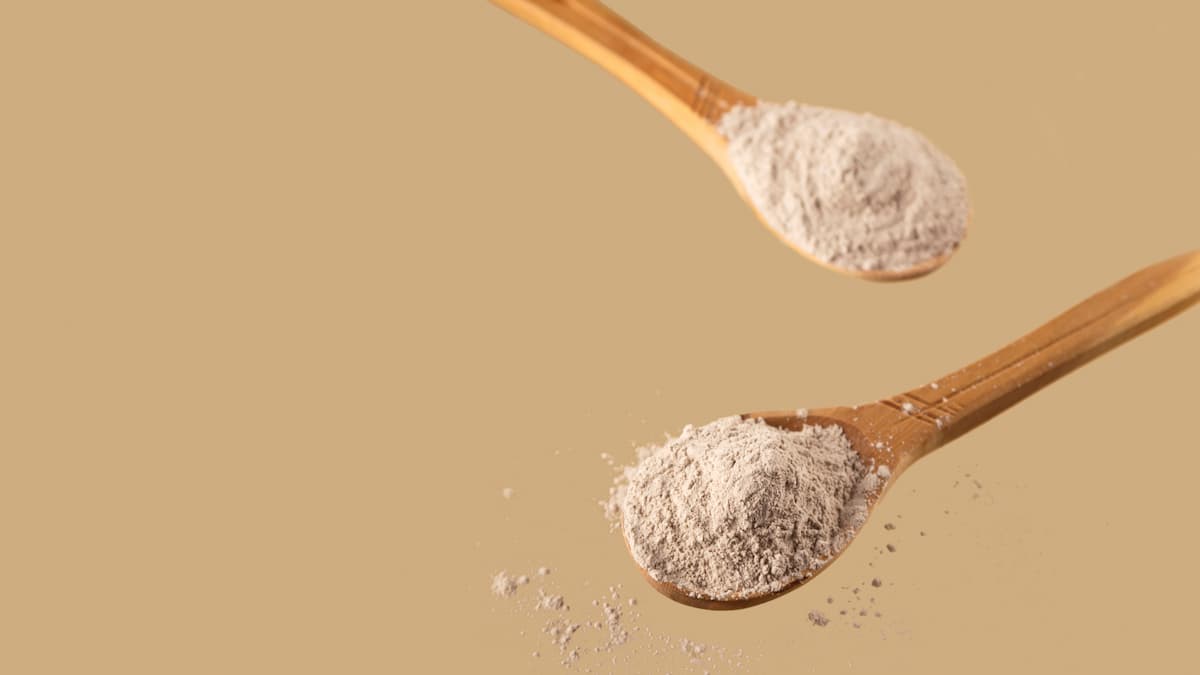
Everything you want to know about COLLinstant collagen.

Collibre collagen is an interesting supplement in shot form.
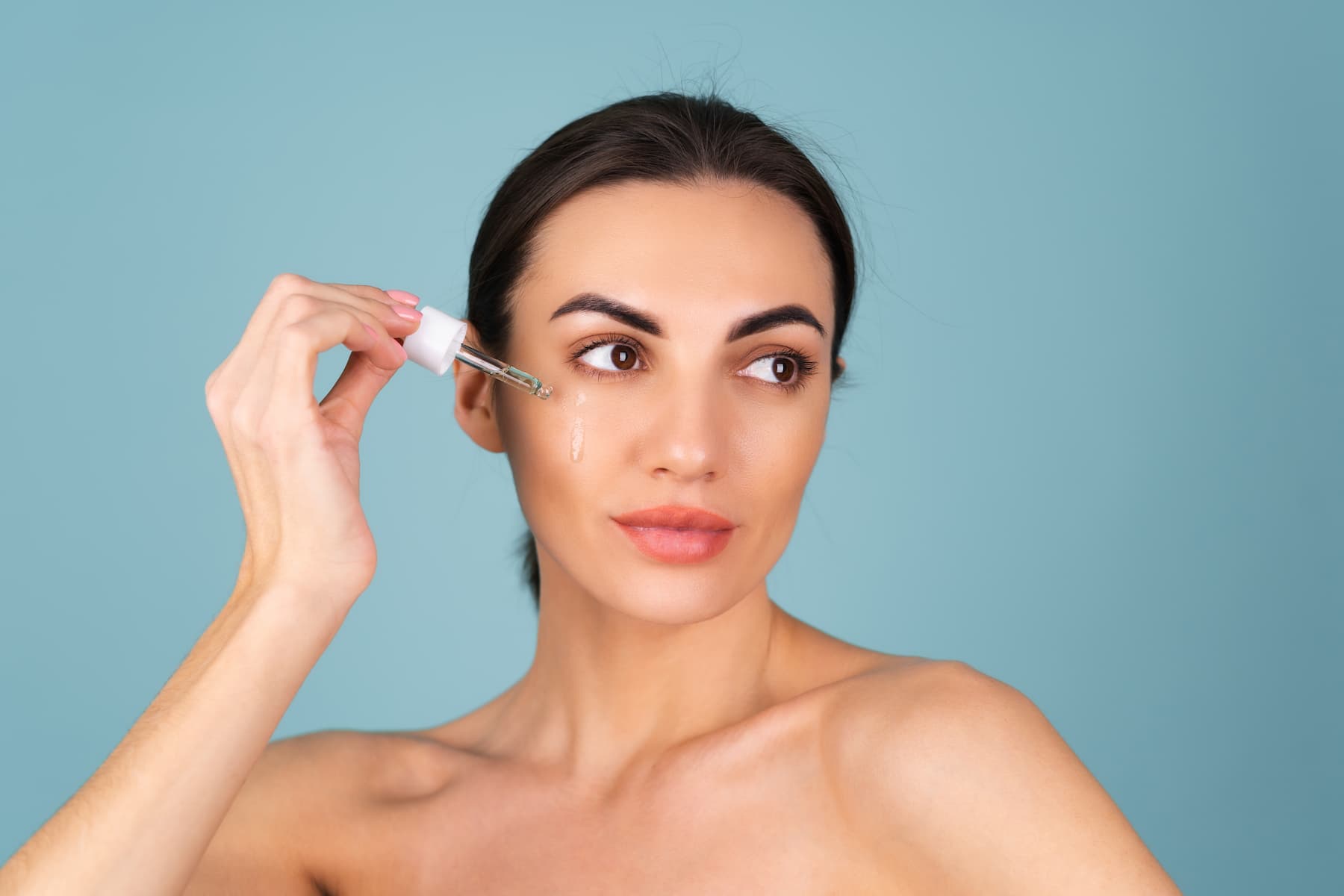
Solgar collagen with hyaluronic acid is a dietary supplement that supports skin and joint health.
